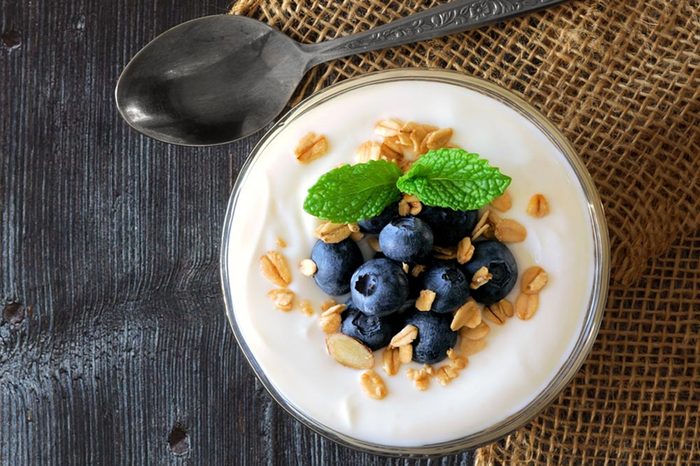
Yogurt
Not all yogurts are the same, so watch out for yogurts filled with sugars and syrups. Instead, pick yogurts that have natural ingredients and say “live and active cultures” for maximum health and probiotics benefits. Not sure what probiotics actually are? Brush up on a few quick probiotic facts.
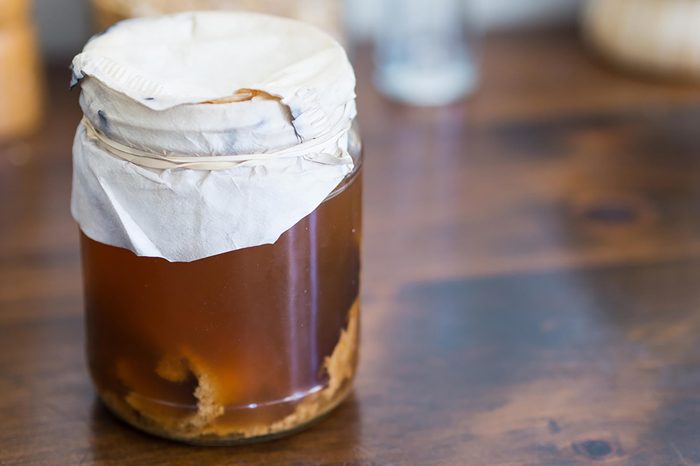
Kombucha (fermented tea)
Kombucha is a popular, fermented tea drink that you can find in the refrigerated cases of most grocery stores. It has been found to increase energy and help with digestion. Probiotic foods like kombucha may also have other incredible health benefits, such as helping calm anxiety. Here are the best kombucha brands dietitians recommend you try.
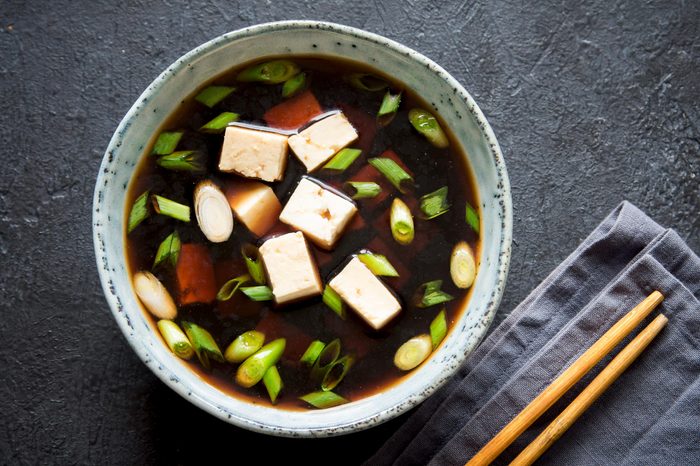
Miso soup
Popular in Japanese restaurants, miso soup is a tofu and vegetable broth that’s low in calories and high in probiotics and protein. Also available in packets at the grocery store to make at home, it’s a healthy and delicious break from the usual canned soup.
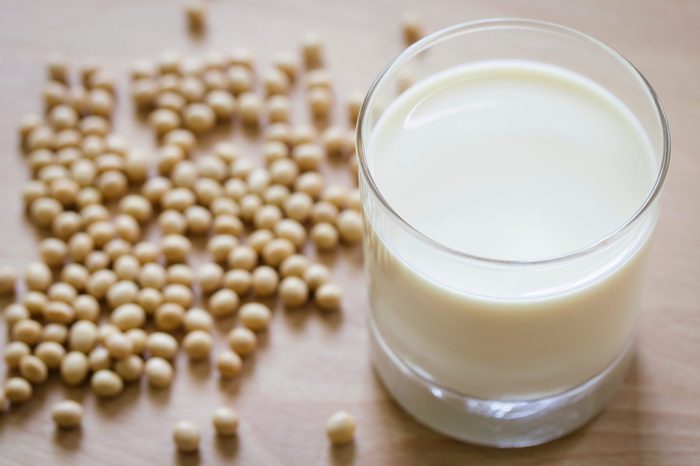
Probiotic soy milk
Soy is a plant food that naturally contains some benefits, but some soy milk products on the market have added extra live cultures. Look for labels that say “live and active cultures.” (Is soy bad for you? Find out the answer to this common myth.)
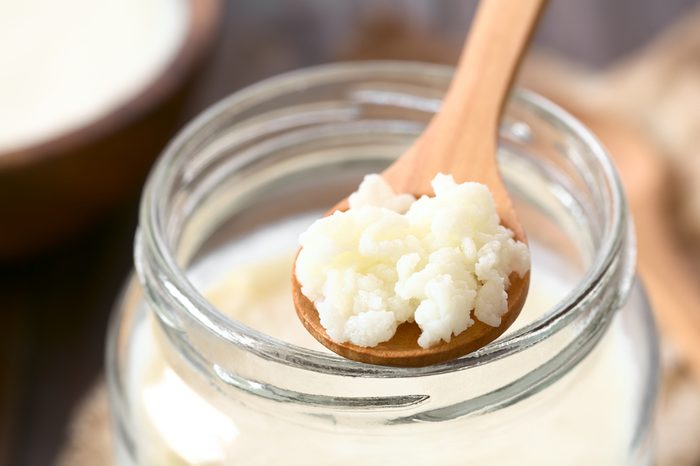
Kefir
A cross between yogurt and milk, kefir is a tart, delicious way to get probiotics and vitamins into your system. Try pouring the plain variety over healthy granola and fruit, or as the base for a smoothie-like drink. If you don’t like it, try these other probiotic foods to help boost your gut bacteria.
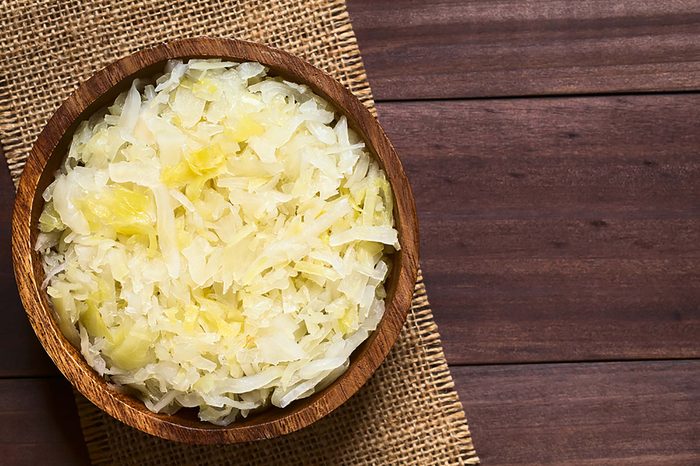
Sauerkraut
Not all sauerkraut plays host to the good bacteria you’re looking for: Make sure to choose one from the refrigerated section of the grocery store that says “naturally fermented” on the label. Then drop a scoop onto your favorite hot dog or eat as a side dish with lean pork. Added bonus: Fermented sauerkraut is one of the 49 surprising anti-aging foods that may keep you healthy longer.
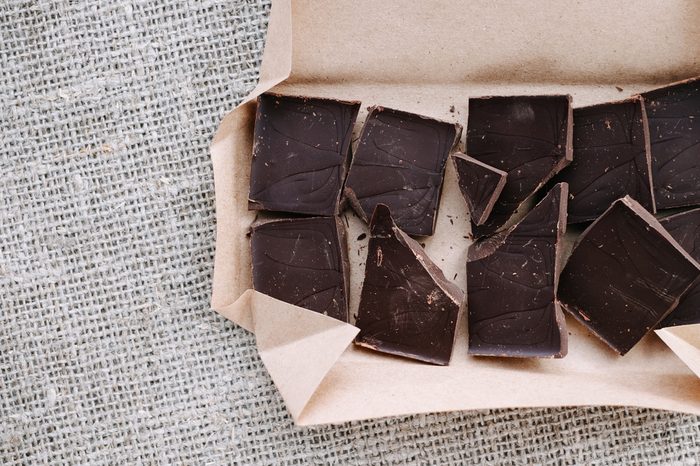
Dark chocolate
Although chocolate doesn’t contain healthy gut bacteria like many of the other “probiotic foods” on this list, it does work some major magic in the gut. A study presented at the 2014 National Meeting of the American Chemical Society found that as the antioxidants and fiber in dark chocolate are fermented by bacteria that already live in our digestive system, they create super powerful compounds that may reduce inflammation in the body.
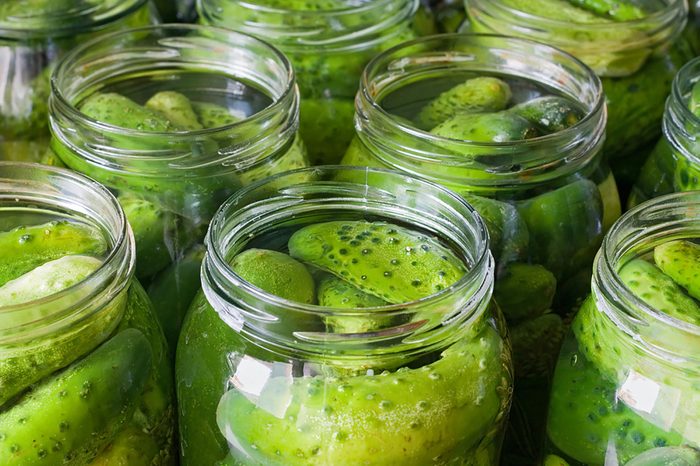
Naturally fermented pickles
Whether you like them sweet or dill, some pickles—those that are naturally fermented—contain a good amount of probiotics for your system. Make your own or pick up a jar in the refrigerated section of a specialty market, and add to your sandwiches for some crunch.
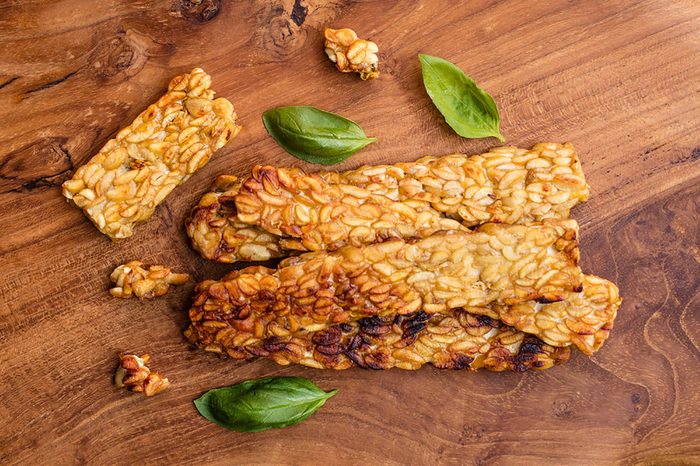
Tempeh
Made from fermented soy protein, tempeh is one of the best vegan protein sources. It’s naturally fermented and is full of vitamin B12 and probiotics. Try it baked, grilled, or sautéed for a tasty meatless meal.
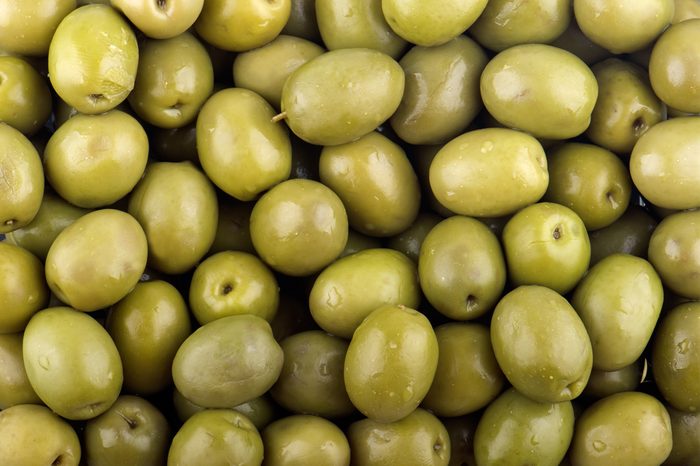
Olives
Spanish-style olives are fermented—not just brined like American-style olives—so they contain live probiotic cultures. Eat them whole as a snack or add to a salad or pasta dish.
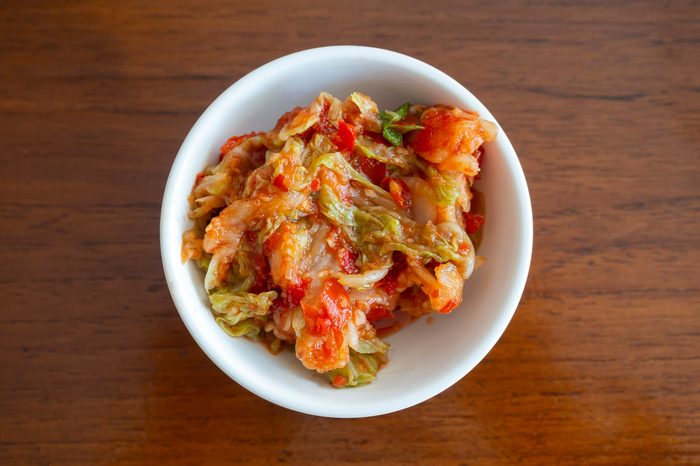
Kimchi
A popular Korean condiment, kimchi is fermented and pickled cabbage that can be very spicy. Filled with vitamins, calcium, and probiotics, it’s a hot way to stay well. But don’t overdo it—kimchi is also high in sodium, and is one of 17 healthy foods that you shouldn’t overeat.
